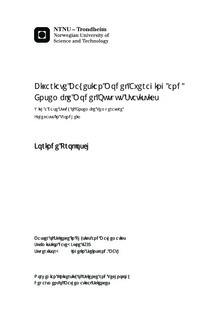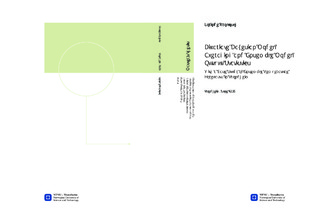| dc.contributor.advisor | Steinsland, Ingelin | nb_NO |
| dc.contributor.author | Prokosch, Jorinde | nb_NO |
| dc.date.accessioned | 2014-12-19T14:00:17Z | |
| dc.date.available | 2014-12-19T14:00:17Z | |
| dc.date.created | 2013-10-15 | nb_NO |
| dc.date.issued | 2013 | nb_NO |
| dc.identifier | 656466 | nb_NO |
| dc.identifier | ntnudaim:9896 | nb_NO |
| dc.identifier.uri | http://hdl.handle.net/11250/259230 | |
| dc.description.abstract | In this study a bivariate Bayesian model averaging (BMA) and Ensemble model output statistics (EMOS) technique for ensemble temperature forecasts are proposed to account for lead time dependencies between errors. Also univariate BMA and EMOS techniques are applied to generate calibrated normal predictive density functions. For univariate models, Maximum likelihood estimation (MLE) and minimum Continuous rank probability score (minCRPS) estimation are compared. In addition to the MLE, a sample method to simplify the minimum Energy score (minES) estimation is proposed for bivariate models. In a case study of 2-m surface temperature in Trondheim - Voll between year 2007 and 2011, using the European Center for Medium-Range Weather Forecasts (ECMWF) forecast ensembles, the BMA technique using minCRPS estimation shows the most calibrated and sharpest post-processed probabilistic forecasts. The bivariate EMOS model using minES estimation gives the best score and shows that there is lead time dependencies between errors. | nb_NO |
| dc.language | eng | nb_NO |
| dc.publisher | Institutt for matematiske fag | nb_NO |
| dc.title | Bivariate Bayesian Model Averaging and Ensemble Model Output Statistics: With a Case Study of Ensemble Temperature Forecasts in Trondheim | nb_NO |
| dc.type | Master thesis | nb_NO |
| dc.source.pagenumber | 93 | nb_NO |
| dc.contributor.department | Norges teknisk-naturvitenskapelige universitet, Fakultet for informasjonsteknologi, matematikk og elektroteknikk, Institutt for matematiske fag | nb_NO |

